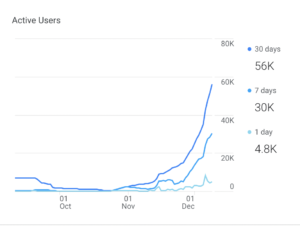Search engine marketing (SEM) is a way to market your business on search engines like Google, Bing, and Yahoo! Search. SEM uses Internet advertising to display ads on a search engine results page, or alongside related websites or videos.
Offering more than just advertising, SEM offers various methods such as SEO (search engine optimization), copywriting, PPC (pay per click), blogging, and social media marketing.
SEM encompasses the entire online marketing ecosystem, which includes pay-per-click (PPC) advertising and display advertising.
The benefits of search engine marketing are clear. It can help turn people who may not have found your website a stranger into potential customers, by leveraging their searching habits and prior search history. With search engines like Google and Facebook now actively seeking out advertisements, SEM has become an integral part of marketing to consumers that are looking for you online.
Conversion tracking is the only way to know if your campaign’s return on investment (ROI) is positive or negative. Search engine marketing offers an array of conversion and engagement metrics, allowing you to gain insights into your search advertising performance and guide future campaign goals.
Related to conversion tracking, you also want to create landing pages for specific keywords in order to provide a more customized experience for your audience. You can not only track performance and gain insights into your campaigns by creating landing pages, but you can also enhance the campaign’s ROI.

What are some advantages of Search Engine Marketing?
Search engine marketing (SEM) is a way to market your business on search engines like Google, Bing, and Yahoo! Search. SEM uses Internet advertising to display ads on a search engine results page, or alongside related websites or videos.
Offering more than just advertising, SEM offers various methods such as SEO (search engine optimization), copywriting, PPC (pay per click), blogging, and social media marketing.
SEM encompasses the entire online marketing ecosystem, which includes pay-per-click (PPC) advertising and display advertising.
The benefits of search engine marketing are clear. It can help turn people who may not have found your website a stranger into potential customers, by leveraging their searching habits and prior search history. With search engines like Google and Facebook now actively seeking out advertisements, SEM has become an integral part of marketing to consumers that are looking for you online.
Conversion tracking is the only way to know if your campaign’s return on investment (ROI) is positive or negative. Search engine marketing offers an array of conversion and engagement metrics, allowing you to gain insights into your search advertising performance and guide future campaign goals.
Related to conversion tracking, you also want to create landing pages for specific keywords in order to provide a more customized experience for your audience. You can not only track performance and gain insights into your campaigns by creating landing pages, but you can also enhance the campaign’s ROI.
- “Our Woven Journey” Boosts Website Traffic with SEORDEV’s Google Web Stories Service
- How to market on social media
- How To Make Your Online Store Stand Out From The Competition
- How best to reach potential customers on E-Commerce websites?
- How Social Media Can Help You Grow Your Business
What are some advantages of Search Engine Marketing?
Search engine marketing (SEM) offers several advantages when compared to other forms of digital marketing. These include:
ROI – A SEM campaign is measurable, meaning you can see how well it performs from week to week and month to month.
An SEM campaign is measurable, meaning you can see how well it performs from week to week and month to month.
Granularity – With a search engine, you can choose exactly which keywords you want to target, your website’s specific landing page, and the impression format that works best for your campaign.
With a search engine, you can choose exactly which keywords you want to target, your website’s specific landing page, and the impression format that works best for your campaign.
Flexibility – You can use different methods of advertising within a single campaign or across campaigns. For example, you might use PPC advertising and SEO advertising within the same campaign, or use PPC advertising across all campaigns.
You can use different methods of advertising within a single campaign or across campaigns. For example, you might use PPC advertising and SEO advertising within the same campaign, or use PPC advertising across all campaigns.
Audience targeting – You can choose to target specific customers that are looking for a service or product. For instance, when designing landing pages in Google AdWords, you can target people who have shown interest in one of your products or services.
You can choose to target specific customers that are looking for a service or product. For instance, when designing landing pages in Google AdWords, you can target people who have shown interest in one of your products or services.
Tracking – You can track the performance and performance of a campaign by using conversion metrics. You can track the performance and performance of a campaign by using conversion metrics.
Balancing – Search engine marketing is an effective way to grow your business because you are able to balance PPC advertising with the other marketing approaches mentioned above.
Search engine marketing is an effective way to grow your business because you are able to balance PPC advertising with the other marketing approaches mentioned above.
Timing – One of the most important advantages of search engine marketing is that you can start up and shut down campaigns very quickly. This is crucial in today’s fast-paced digital world, where consumers are constantly wanting new options.

Who should use search engine marketing?
Search engine marketing can and should be used by almost every business in some way or another.
To fall within the category of “almost every business,” your business must fit into at least one of the following criteria:
SEM’s ROI is higher than other forms of marketing (for example, paid advertising such as PPC or in-house advertising) ROI is lower than other forms of marketing (for example, in-house advertising) You need to reach a new audience You need to track performance To optimize your content Your customers will be looking for you online to buy a service or product
The importance of search.
The search engine is the most important mechanism of information consumption and information distribution. Today everyone knows what it is, even the typical user gets to know through an internet platform or on TV. Every day more people search the Internet to find something they need or want. This is a trend that will not change anytime soon and we must take advantage of it. If we do not use the tools provided by search engines, no one else will.
SEM can help you to take advantage of this trend and create a unique place on the Internet for your brand so that it takes off on the Internet. SEM is essential for customer acquisition, engagement, and retention on online channels. That’s why it should be a separate strategic marketing tool.
Customer acquisition with SEM.
Search engine marketing is the way to go if you want to find new customers.
Although it is possible in some social networks, which use search as a discovery tool, In a general sense, it is necessary to position your brand on search engines to create an effective SEO strategy.
If you are interested in acquiring new customers through the internet and take advantage of SEM, it will help you determine customer acquisition costs (CAC), how much traffic you need to generate, and how much money you need to invest.
This will help you determine the scope of your marketing plan, especially if you are starting a new business.
Customer engagement with SEM.
When people search for something on the Internet, the most interesting information is what they can find and what they can not find. That’s why it is important to pinpoint your target audience because it will help you increase customer engagement.
Once you have identified your target audience, the next step is to create a strategy that will help you build brand awareness and customer trust. That’s why it is important to build your brand in search engines to create better relationships with your customers.
Customer retention with SEM.
One of the reasons we are so interested in customer retention is that it is much easier to retain a customer than find a new one. According to eMarketer,1 the number of abandoned shopping carts that result from a marketing strategy is:
40.8% abandonment rate for mobile. 46% abandonment rate for desktops. 10% abandonment rate for tablets.
The main objective of a successful online marketing strategy is to get your customers to say, Yes.
That’s why Search Engine Marketing (SEM) is useful in retaining customers. When you create an effective SEM strategy, you will attract new customers and keep the current ones.






